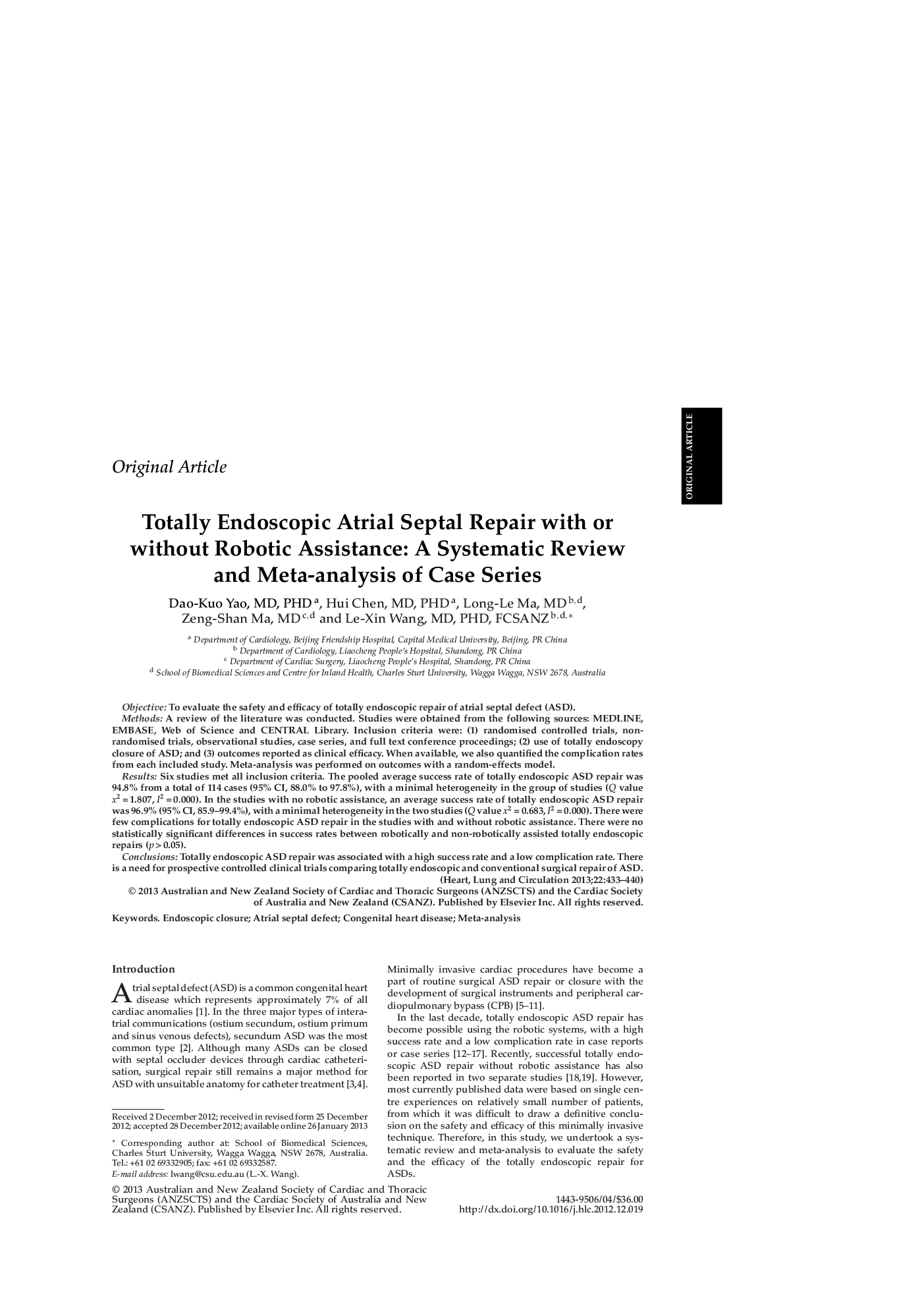| Article ID | Journal | Published Year | Pages | File Type |
|---|---|---|---|---|
| 2918956 | Heart, Lung and Circulation | 2013 | 8 Pages |
ObjectiveTo evaluate the safety and efficacy of totally endoscopic repair of atrial septal defect (ASD).MethodsA review of the literature was conducted. Studies were obtained from the following sources: MEDLINE, EMBASE, Web of Science and CENTRAL Library. Inclusion criteria were: (1) randomised controlled trials, non-randomised trials, observational studies, case series, and full text conference proceedings; (2) use of totally endoscopy closure of ASD; and (3) outcomes reported as clinical efficacy. When available, we also quantified the complication rates from each included study. Meta-analysis was performed on outcomes with a random-effects model.ResultsSix studies met all inclusion criteria. The pooled average success rate of totally endoscopic ASD repair was 94.8% from a total of 114 cases (95% CI, 88.0% to 97.8%), with a minimal heterogeneity in the group of studies (Q value x2 = 1.807, I2 = 0.000). In the studies with no robotic assistance, an average success rate of totally endoscopic ASD repair was 96.9% (95% CI, 85.9–99.4%), with a minimal heterogeneity in the two studies (Q value x2 = 0.683, I2 = 0.000). There were few complications for totally endoscopic ASD repair in the studies with and without robotic assistance. There were no statistically significant differences in success rates between robotically and non-robotically assisted totally endoscopic repairs (p > 0.05).ConclusionsTotally endoscopic ASD repair was associated with a high success rate and a low complication rate. There is a need for prospective controlled clinical trials comparing totally endoscopic and conventional surgical repair of ASD.
